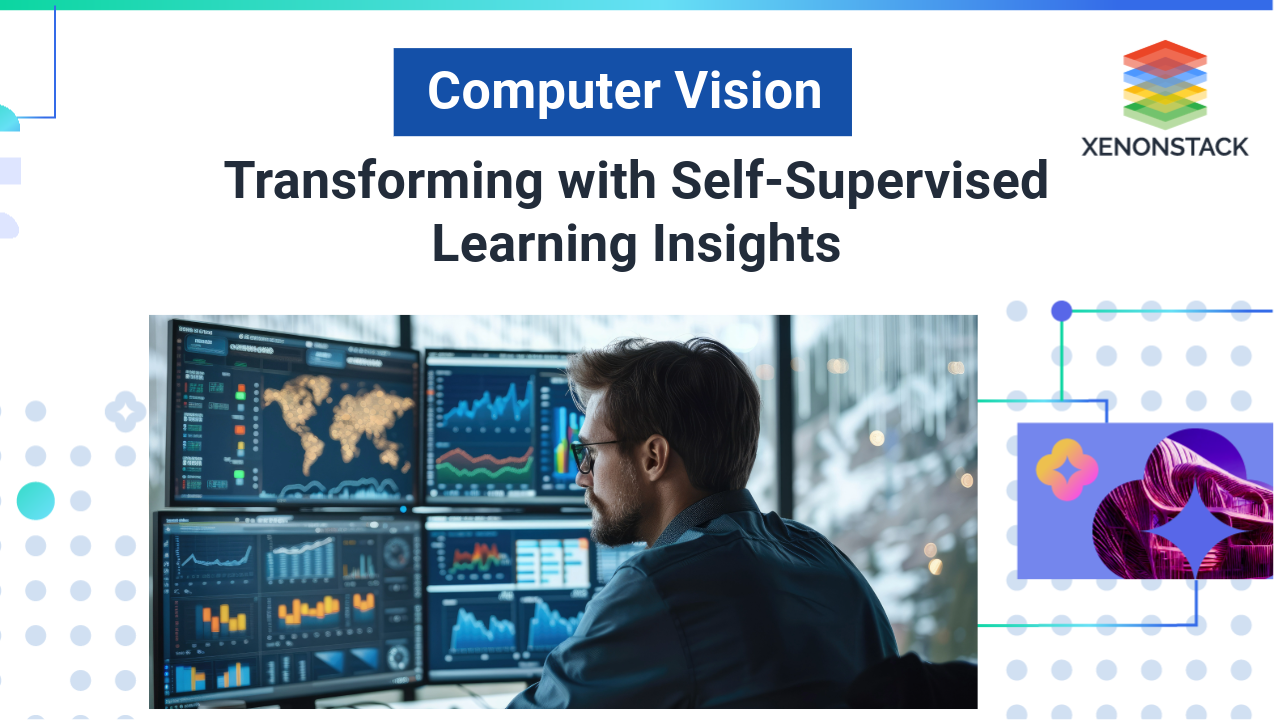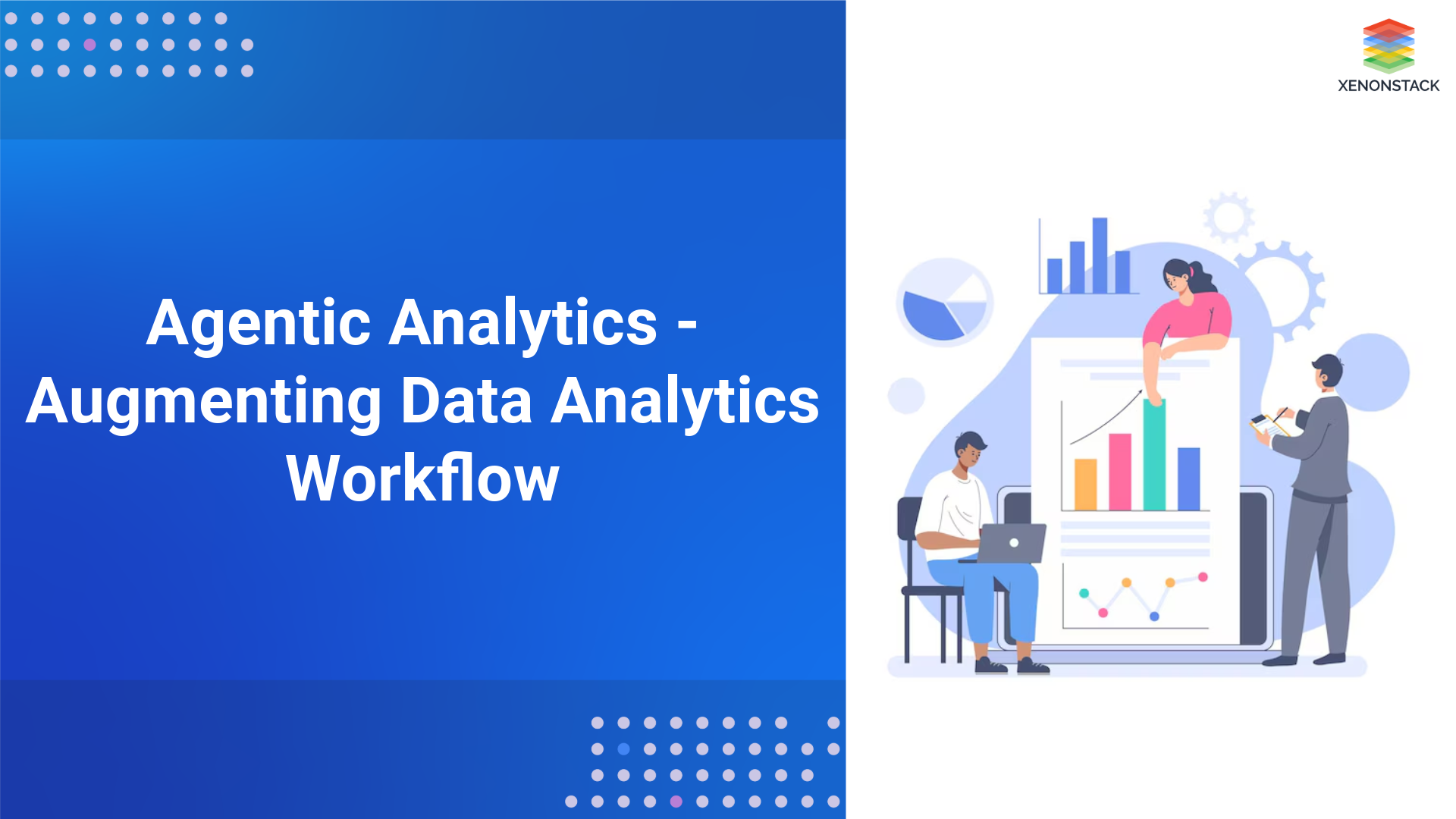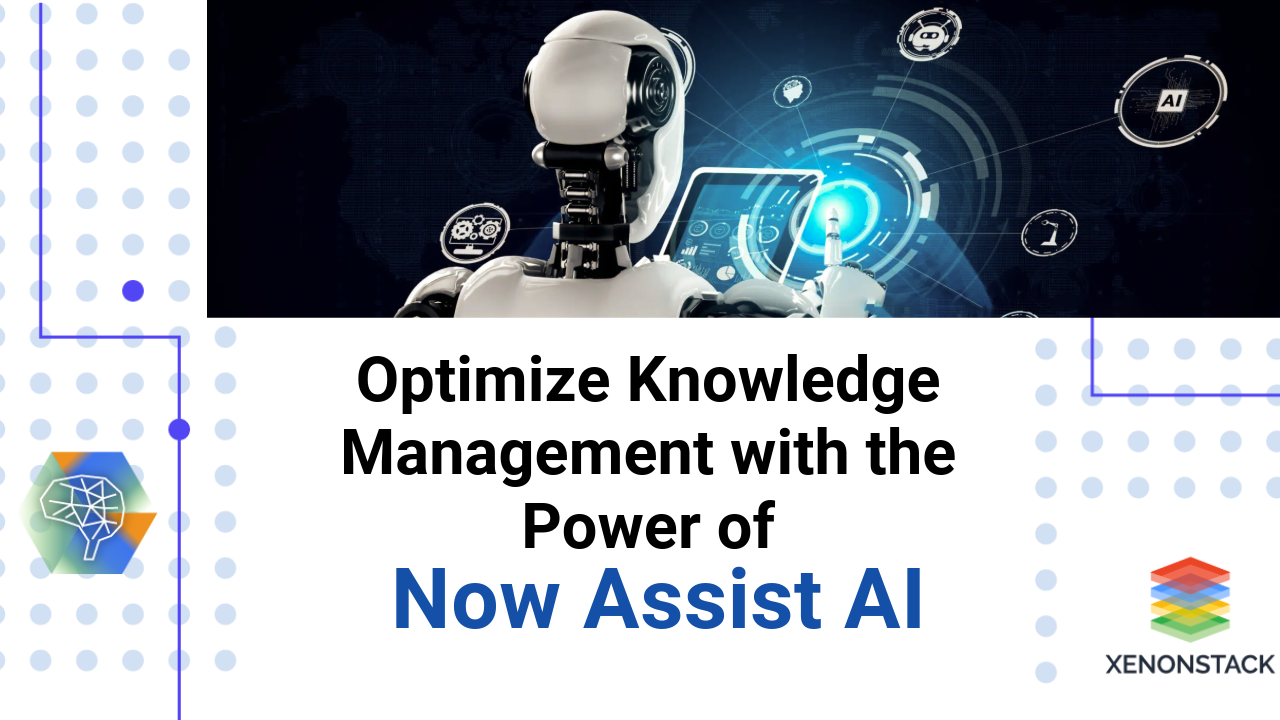Web 1.0 was the beginning of the story of the internet. It was akin to one-way traffic, a read-only medium where information dominated but bringing out communication was very restricted. Ponder is a stationary digital pinball that is simply instructive, static in its ability, and based on mere HTML and URL techniques due to Tim Berners-Lee. For its generation, it was groundbreaking television; however, the show and, more importantly, the themes depicted only ran skin deep.
Web 2.0 made the internet come alive. Overnight, it has changed from simply watching or reading things that are given to us to creating such things. Most conventional social media platforms, including Facebook, YouTube, and Twitter, overwhelmed the paradigm of the user as a creator. The Internet moved from being an electronic reference to a global electronic marketplace. Applications for smartphones and SNS transformed the internet into friendly and interactive places that foster people's communication, sharing, and forming many numbers of communities.
And now, Web 3.0 is set for a reinvention of the internet for a third time. This time, it is decentralization, blockchain, and the power back to the users, or at least a return to it. Well, a glimpse of this is discovering one’s own Digital Self, data, and tangible assets without having to go through other large platforms. These are artificial intelligence, smart contracts, and decentralized networks by which Web 3.0 is creating an intelligent, secure, private, and, most of all, open internet.
"Al is set to contribute a jaw-dropping $15.7 trillion to the global economy by 2030 according to PwC. This technological revolution, led by Al and machine learning, is expected to drive a 14% surge in global GDP, fundamentally transforming industries worldwide"
Get ready for a revolution! The expected increase in the size of the AI and blockchain markets for new market opportunities and improvement could grow to $2.7 billion by 2031.
Self-governing AI entities will pose a threat to Web3 because they are independent and use complex cryptographic heuristics and rewards. They will complement complex on-chain operations with simple interfaces, thereby improving the overall experience of the decentralized web for everybody.
"Welcome to the future of smart interactions!"
AI Agents: Revolutionizing Web3
AI Agents
The term ‘AI agent, ‘which has become a buzzword, is still vigorously discussed. Thus, let us first understand its real meaning.
In the Web3 context, AI Agents are akin to digital pioneers' self-operating programs that interface with complex models built upon on-chain contracts and actions. These smart agents are designed to have application tools that allow them to handle other intricate matters, linking on-chain and off-chain databases, applications, and services. They are the link to a far more connected and diverse decentralized system, folks!
 Fig1.1: How AI agent works
Fig1.1: How AI agent works
Core
-
Instruction Set: This should help you to think of this as the agent’s playbook! This document outlines the goal and the regulatory policies by which the conduct shall be guided. For instance, there is an agent that tracks cryptocurrencies’ prices and only conducts purchases and sales when instructed to do so by you. When instructed, a token brings in the current price and then waits in anticipation to know if you would like to trade. Having trained to be such an effective virtual assistant to a trader is like having a personal trading assistant at your disposal!
-
Tools: Every AI agent's action capability is provided by a many-faceted toolkit that enables it to act. These tools are useful, especially when it comes to renaming smart contracts and querying them or performing an operation on a chain or otherwise. The agent knows your instruction set and memory, so the correct tools are pointed out accordingly—Infiniti-like Swiss knives!
-
Wallets: To achieve actual autonomy, the AI agent must perform the transactions autonomously. For a 1-X multi-signature contract, it possesses a signatory key to sign transactions unilaterally while at the same time being vested with such authority in conjunction with other agents including yourself. This arrangement ensures that the playing mode is smooth and secure since your agent can perform a task on its own, and all you need to do is control the game and be the director
How it works?
Let us consider AI agents as travel guides in the interesting topic of Web3, and they do not make things difficult in any way. Here is how they come to life and work their magic:
-
Setup and Infrastructure: It begins at the foundation level, building the blocks of the infrastructure, the wallets, or the tools that are coordinated with an agent's goals. Imagine it in terms of constructing a great, powerful engine to be put out on the road!
-
Gathering Insights: As soon as you send a request, the agent leaps to work! Thus, using its toolkit to obtain necessary information, it receives the capacity to ‘sense’ its surroundings. Imagine a trading agent using Trading View API or getting a quote from Uniswap X to obtain today’s prices.
-
Planning and Execution: If the agent receives time-sensitive information and alternatively, as the case may be, the proceeds to plan and take appropriate action. For example, if the price level of a good or service is favorable and equals the original price level, then it can prompt a trade directly through its agent wallet relying on the Uniswap tool. This is like having a trader who will precisely suggest a move during a certain period to undertake!
-
Continuous Improvement: What’s even cooler? These agents can be trained: they can be taught the role of the agents. They modify their behavior about their feedback, thus enhancing their process in terms of the quality of output.
-
Full Autonomy: Individual AI agents do not operate under any collective folder, and they are controlling their wallets and resources. They manage funds, pay gas fees, and work with tools both on and off the blockchain—all while requiring zero input from you
With such flexibility, AI agents are disrupting many ways in which we interact with the distributed web, the DWeb, and simplifying complex tasks into a breeze.
AI Agent’s Role in Enhancing Web3 Functionality
At times, it seems like you already have decentralized networks programmed with intelligence and excellent automation – this is just the power of AI in Web3!
AI Agents cooperate with decentralized applications (DApps) from the evolution of DeFi, to intricate decision-making processes within Decentralized Autonomous Organizations (DAOs). They learn in the context, engage in the systems, and make changes without human intervention.
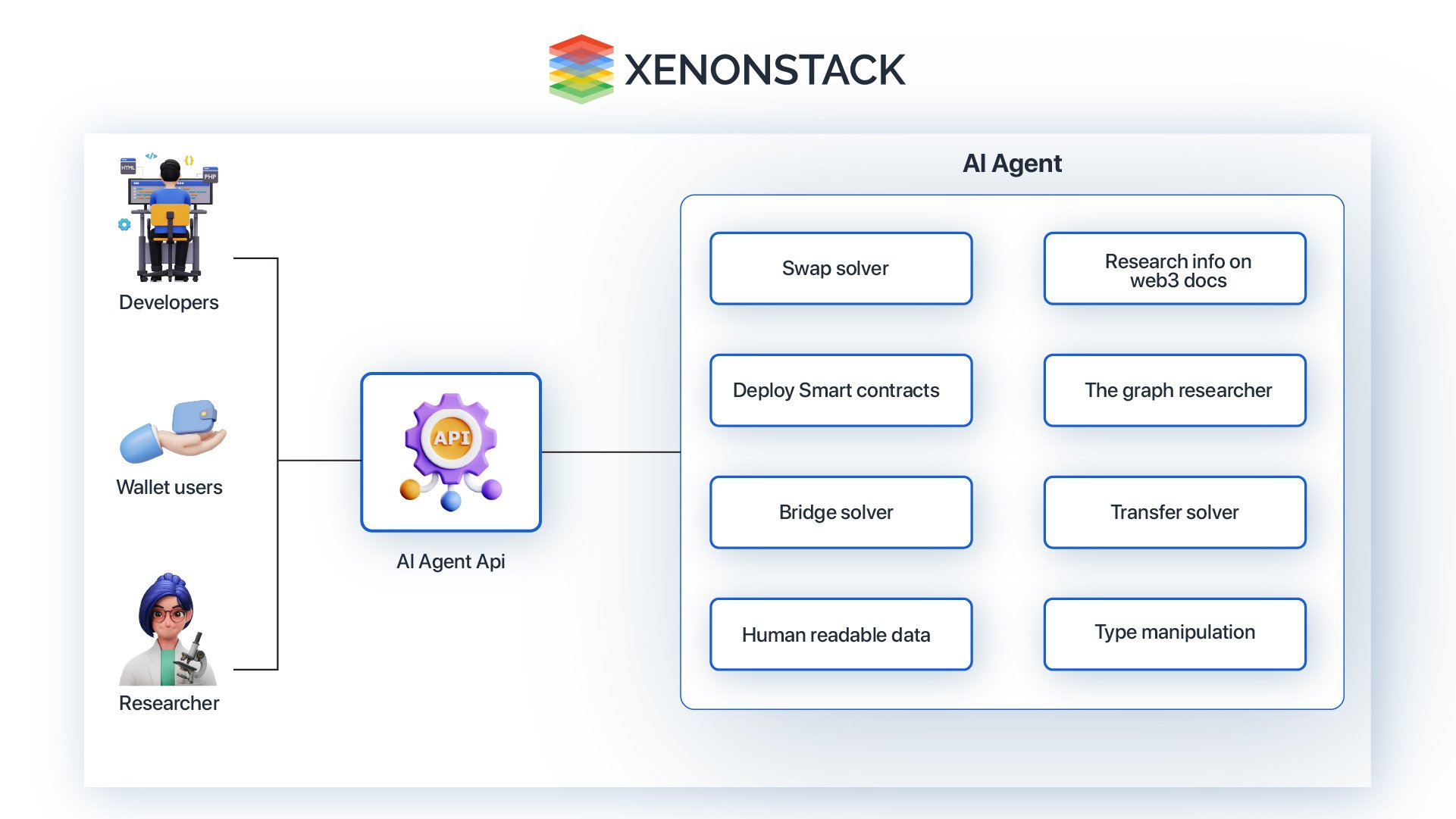
Fig1.2: AI’s role in enhancing web3 functionality
This results in proper implementation, the right usage of available resources, and proper monitoring of security issues. AI, when incorporated into Web3 platforms, enables the handling of voluminous data at different blockchains and assists in the decision-making process regarding higher security regarding risks and opportunities related to automating and optimizing contracts and being driven by adaption to different user experiences.
Indeed, when integrating AI and blockchain, we are not simply augmenting decentralization. We are just starting with Web3 and working to make it as scalable and functional as possible.
"Welcome to the future of smart, responsive networks!"
How AI agent can Act as an Arbiter
Let us imagine the time when AI stands before you as not only enhancing your experience but also handling the complex concept that is Web3. Here’s how AI can transform various sectors:
-
Decentralized Prediction Markets: Existing in the form of a prediction market, any event, be it a sports match, or political event can be predicted. AI can be seen as an observer of events, and it is responsible for verifying results. However, it gathers data from other sources and applies several Natural Language Processing tools to increase the reliability of the received data. The payments also occur automatically once terms have been met by the counterpart, the efficiency is thus achieved, it does not entail bias as it is performed by smart contracts.
-
Dispute Resolution occurs mainly in contractual relations, especially where clauses form the basis of the entire agreement and in large business deals. AI referees process transaction records and contract terms to arrive at an early and effective solution. They implement justice based on the law, which produces the right results and takes less time and resources than other approaches to solving conflict.
-
Authentication in NFT Markets: In the NFT segment, Artificial Intelligence appeals are used to evaluate the introduction and uniqueness of the artwork or the rights to it. With the help of image recognition and transaction history, AI can identify originality and violations. It can also ensure that the transaction is made as soon as confirmation and safely, leading to greater confidence in the market.
-
Gaming and Virtual Worlds: In decentralized gaming, referees are artificial intelligence who closely monitor the players’ actions to avoid game manipulations. They can also stop cheating and the ‘cheaters’. Besides, they are the middle between the player’s ability and the game's difficulty. Referees also facilitate maintaining the fun aspect of the gameplay overall, helping the game ensure that all of those engaged, indeed, enjoy the gameplay, which is quite an advantage.
-
Oversight of Smart Contract Execution: AI also helps ensure that smart contracts are run well. When processing transactions and executing logs, AI can identify risks and devise countermeasures regarding users and resources in real time. This is also helpful for those who want to enhance the versatility of smart contracts within the distributed ledger.
Case Studies: AI Agents in Web3
Use Case 1: Blockchain-Based AI Marketplaces
The Challenge: Data is the lifeblood of AI, but acquiring a large set of training data and GPUs is challenging, given the likes of AWS.
The Solution: Introducing blockchain-based decentralized markets! These platforms undermine the equitable availability of material resources making it simpler for AI projects to acquire GPUs than depending on cloud providers.
Key Players:
- A decentralized marketplace for computing resources.
- Enables distribution of GPU rendering.
- Offers cloud computing for AI, powering projects like Libertai.io.
- An AI marketplace providing diverse services.
- AI models compete and trade as NFTs.
Impact: Decentralization enhances fairness, allowing AI innovators to thrive in an inclusive ecosystem.
Use Case 2: Financial Analysis
The Challenge: Analyzing on-chain data—like active addresses and whale investment patterns—is complex and time-consuming.
The Solution: AI analytics tools can sift through vast data sets, providing valuable insights and strategies for market participants.
Highlights:
- Collaboration to combat fraud in crypto transactions.
- Predicts cryptocurrency volatility using machine learning.
Impact: AI transforms financial analysis, leading to more informed decision-making and improved investment strategies.
"Unlock the future of finance with Generative AI Agents—where automation meets intelligence for transformative reporting. Read more here!"
Use Case 3: AI-Driven DAOs
The Challenge: DAOs lack true autonomy, often relying on human intervention.
The Solution: AI steps in to automate mundane tasks and streamline operations.
Examples:
- Testing an AI that autonomously decides project funding.
- Integrating Governance AI Tools (GAITs) to assist in project management.
Impact: AI enhances efficiency and coordination, allowing DAOs to focus on strategic decision-making.
Use Case 4: Auditing Smart Contracts
The Challenge: Automated auditing with AI is not foolproof; inaccuracies can lead to costly errors.
The Solution: AI assists in the auditing process but must evolve to handle the complexities of smart contracts.
Example:
- Using ChatGPT for token security reviews highlighted potential errors, sparking discussions on AI's limitations.
Impact: A focused approach to training AI on smart contract data could revolutionize auditing, ensuring safer deployments.
Use Case 5: Fighting AI Fakes
The Challenge: Distinguishing reality from AI-generated content is increasingly difficult.
The Solution: Blockchain technology provides a transparent way to track content origins, enhancing trust.
Initiatives:
- Combines AI and blockchain for news verification.
- A coalition promoting blockchain to combat disinformation.
Impact: This fusion of AI and blockchain can protect against misinformation and enhance content authenticity.
Benefits
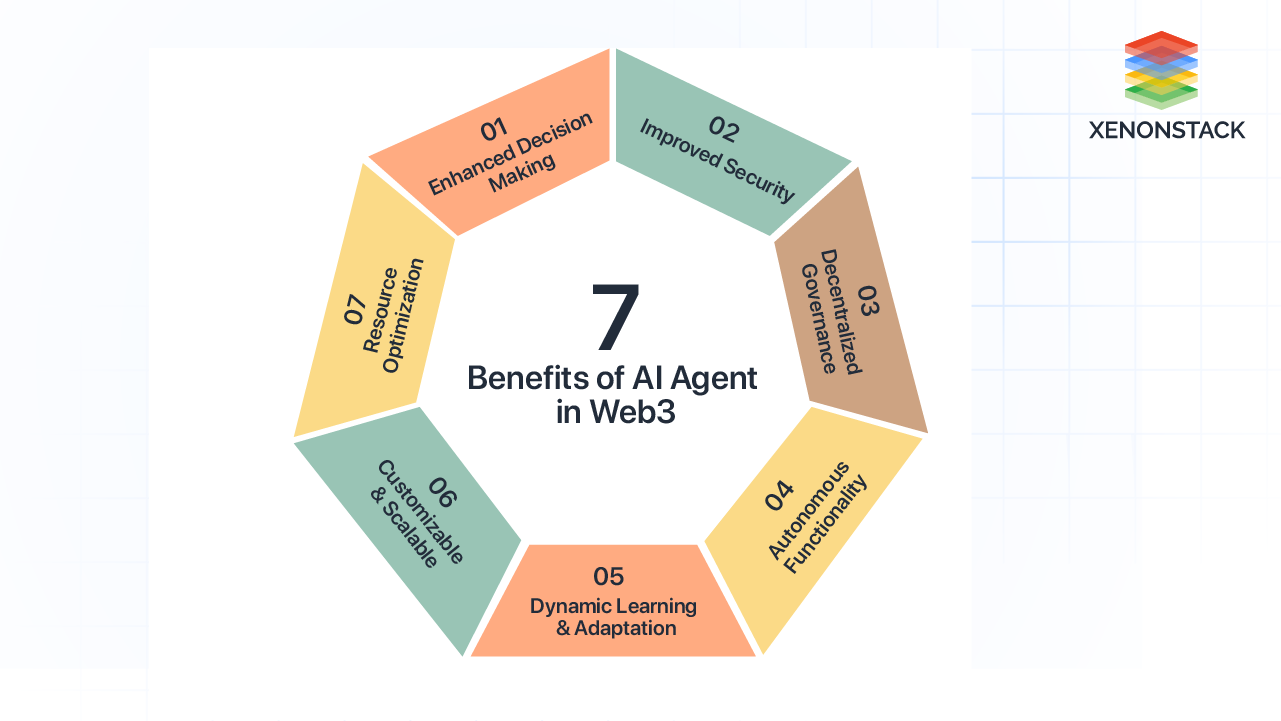
Fig 1.3: Benefits of AI agents in Web3
Key Considerations for Using Agents in Web3
On the one hand, AI agents are advancing innovations across Web3; however, certain challenges must be resolved. Here is a closer look at the hurdles they face:
Data Centralization
As the situation stands now, most of the web data is centralized, meaning they are managed by few ambitious corporations and hence pose risks in the form of potential single-warehouse failures. Similarly, according to O’Brien, AI development, with its locked-down data and code restricting information on how AI models work, is in danger of going the same way.
Fair Compensation for Data Providers
One of the key challenges people have identified is how to equally reward those providing the data. Malhotra points out that there is an inherent contradiction between user ownership of data and AI's need for mass data. What can be done to promote high-quality and exclusive content generation and dissemination?
Tokenization of AI Models
In this landscape, blockchain solutions such as tokenizing AI training models as NFTs might come with significant changes. As such, there is the possibility of rewarding all the players since developers can be accorded royalties each time other people utilize the models that those developers designed and built for training AI agents.
Privacy-Preserving Techniques
Techniques in use today are complex, and some are federated learning, enabling the AI system to train the models using diverse datasets without combining them. This, for instance, refers to the so-called Zero-Knowledge Proofs or Homomorphic Encryption.
The Black-Box Problem
The issue of transparency is widely debated due to the so-called Black Box problem, as the way to conclude is not evident. This opacity prompts questions about trustworthiness, potential bias, and subjectivity in AI decision-making, and thus, there is a need to gain improved transparency on how the AI decision was arrived at.
The Future of AI Agents in Web3: Endless Possibilities Ahead!
However, experts such as O’Brien envision many benefits for AI agents in the Web3 environment. This is because robotic technology has potential applications anywhere; “The possibilities are endless!” Such AI agents promise to change the manner in which technology interfaces and works with people, especially in how they deal with large datasets for proper and focused purposes.
Harnessing AI on the XRP Ledger
Malhotra highlights exciting opportunities for integrating AI into the functionality of the XRP Ledger (XRPL). Here’s how AI can elevate XRPL:
-
Algorithmic Trading Strategies: While searching for the maximum profit potential, AI can expand diverse trading techniques and reduce the impact human biases could have while pursuing the result. This not only improves investment decisions but also overhauls the way we trade in Decentralized Markets.
Why It Matters
Going forward, their partnership will be increasingly valuable in Web3 as AI remains a strong supporting force in decision-making and productivity improvement. The introduction of AI agents is not only envisaged to enhance the performance of decentralized platforms, but also a complete revolution of how humans will interface with the platforms.
"The future is bright for AI in Web3—are you ready to embrace it? "






